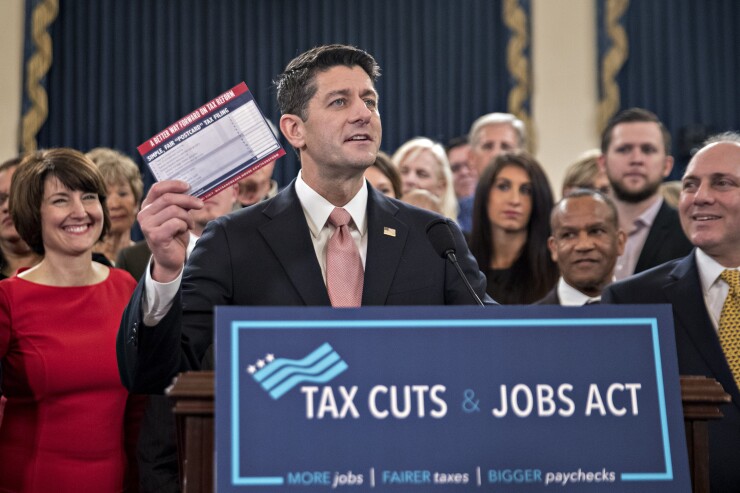President Donald Trump’s tax reform, which slashed the corporate tax rate to 21%, from 35%, has allowed employers to share those savings with their workers, whether that’s a change to the benefits package, such as 401(k) match increases or student loan repayment contributions, or one-time bonuses and minimum wage increases.
Some employers, however, are unsure about what the best strategy is for sharing tax reform savings,
Since the passage of the Tax Cuts and Jobs Act of 2017, 20% of the 300 companies polled by Pearl Meyer have provided some enhanced benefits, with 35% of those respondents considering further changes to their benefits package.

Of companies that have already made changes, 95% said they have made structural changes to compensation first, followed by increasing salaries and retirement benefits. Sixty-five percent of companies, such as AT&T, Home Depot and
See also:
Only 9% of employers enhanced their benefits packages, with an additional 12% of employers increasing their retirement benefits. However, one in five employers are considering making changes to retirement preparation (20%) and enhancing benefits (23%). Fifteen percent of employers are also considering reducing healthcare costs, a move
More than half (52%) of employers are not planning any changes to their benefits package because they are unsure of or not anticipating a significant tax benefit, or are funneling those savings into other programs, like profit sharing plans and equity awards, according to the survey.
The New York-based executive compensation consultancy firm suggests that companies without any plans to share tax reform savings with employees develop “a solid communication plan to explain their rationale.”





